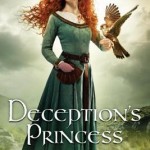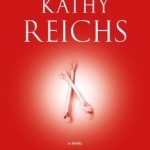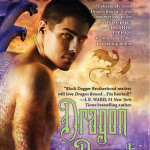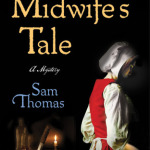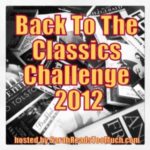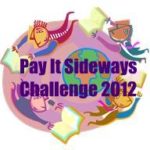Title: Outlander
Author: Diana Gabaldon
Genre: Historical fiction
Publication Date: 1992
Purchase Price: $7.99 (paperback)
Misc. Info.: First in a series–so far it’s up to seven
The Plot
Claire and her husband Frank are enjoying a leisurely second honeymoon in the Scottish Highlands in 1945. Both have served in the military, Frank as a soldier and Claire as a nurse, and they are eager to settle down to real married life. While out exploring the countryside, Claire discovers a “miniature henge.” The stones are not as large as those at Stonehenge, but are still about twice her height and size. As she moves closer, she catches a dim humming, almost as if there is a beehive nearby. It is only when she leans down to touch the stone that she realizes that something is terribly wrong — the stone screams.
When she returns to consciousness, men in red coats surround her, and the sounds of battle are everywhere. After escaping from several sticky situations, she finds herself captured by a group of Scottish Highlanders in full garb, kilts and all. After she realizes that she has not in fact stumbled upon some sort of movie film set, Claire must figure out exactly what happened to her. It is only after her captors bring her to Castle Leoch, in the middle of MacKenzie lands, that she can steal a glance the chieftain’s papers: 20 April, 1743. With this discovery begins Claire’s incredible journey.
The Review
I was conflicted about reviewing this book. There is so much violence—gunshot wounds, amputation, disembowelment, flogging, and rape—and there is also a lot of sex. Although some readers may be inclined to dismiss such a book as smut (or call it a “bodice ripper,” a la Harlequin books), and the encounters are rather explicit/graphic, they are not gratuitous.
Although Claire and Jamie do not love each other when they are made to marry, they do grow to love and respect each other. And while the descriptions of Captain Randall’s actions are cringe- (and possibly vomit-) worthy, they are perfectly in sync with his characterization. The novel (and its sequels) is well put-together, well researched, and is a good read; however, the reader needs to be warned that the sexual and violent content is just that: sexual and violent.
In reading Outlander, I could not help but draw some parallels to Jean M. Auel’s Earth’s Children series. Both are set in a time long gone, and therefore required much historical research. Both authors are also very detailed and descriptive, which makes for even more compelling reading.
Gabaldon’s Outlander is more than just a novel; it is a tour de force of history, war, language, geography, and customs. Claire arrives in 1743 — just a few years prior to the Second Jacobite Rebellion (1745). There were lots of these rebellions between 1688 and 1745, all in an attempt to restore the Stuart kings (originally James VII, and later his descendants) to the thrones of England and Scotland. Claire’s husband, Frank, is a historian, and it is through him that Claire knows some of the history (or rather, the future) of the Uprisings. The final rebellion, led by Charles Edward Stuart, ended on Culloden Field in a horrible battle where (supposedly) between 1,500 and 2,000 Jacobites were killed.
But the reader does not read about that battle until the second book in this series. Don’t think that you won’t get to read about blood and guts, though. There are plenty of situations in which Claire’s medical training saves people. Penicillin was not even noticed until 1896, and didn’t resurface until 1928; and although Claire might have discussed the newest medical techniques with doctors in England, the Scottish Highlanders she’s attempting to save have never heard of germs, and aren’t too keen when she shows up and starts boiling their surgical instruments.
Essentially, Claire must re-learn how to practice medicine. Instead of antibiotics, she must use things like garlic and witch hazel to prevent infection and fevers, cherry bark as a painkiller, leeches to help with bring down bruises, and even spider webs to dress wounds. It is a monumental tribute to Gabaldon’s research: not only does she write in detail about the Jacobites, but also she seems to have done her research in ancient and folk medicine.
The author also knows quite a bit about the various clans of Scotland. She knows their songs, their customs, and even their language. I don’t know much about Gaelic, or how much it may have changed or stayed the same throughout the centuries, but for those who are interested in hearing the language, an example of modern Gaelic is easily found.
A main theme of the Outlander series is that of being torn between two worlds, or even two destinies. Claire struggles with her own knowledge. She knows what will happen on Culloden Field, and how the Jacobite defeat will reverberate down through the clans forever. She knows of the great famine that will spread.
She is also very afraid of changing the future. When she is forced to kill a British soldier, she fears that she has in some way played God by changing destiny. She shouldn’t be in 1743 in the first place — what will her killing someone do to the future? She could end an entire family line. After she confesses everything—including her time travel—to a friar, Brother Anselm, he reminds her: how many people were destined to die had she not been there with her knowledge of medicine, or of the future?
As the reader might have guessed, there are some difficulties with this series. It is very long, and very complex. Outlander is 850 pages, and the longest novel in the series tops out at 1456 pages. I’m not surprised that it takes Gabaldon approximately two years to write each novel. The most recent installment was published in September 2009, and left the reader with a triple cliffhanger. If patience is not your virtue, good luck.
The books can also become a bit repetitive. Although new and interesting characters are introduced in each novel, there are really only so many times that one can read about a battle, a gruesome injury, and various couples copulating. And sometimes the sheer volume of characters is so great that the reader is in danger of having to sketch out family trees in order to keep them all sorted.
But—as usual with books that make it to this blog—the good outweighs the bad, making Outlander worth reading. The story is compelling, the characters real, and the comedy (when it’s there) is genuine. For a woman who has a BA in Zoology, a Masters in Marine Biology, and a PhD in Ecology, Diana Gabaldon makes one heck of a writer.
Kick-ass quotes:
” ‘Oh, aye, Sassenach,’ he answered a bit ruefully. ‘I am your master…and you’re mine. Seems I canna possess your soul without losing my own.’ ” (p.438)
” ‘Ye are Blood of my Blood, and Bone of my Bone.
I give ye my Body, that we Two might be One.
I give ye my Spirit, ’til our Life shall be Done.’ ” (p.267)
Suggested Soundtrack:
The Briar and the Rose
The Dragon’s Breath (David Arkenstone)
Incantation (Loreena McKennitt)
The Merry Sisters of Fate (Lunasa; slightly poor audio quality; please try to pay more attention to the music than the bodhran, although that is certainly lovely too)

